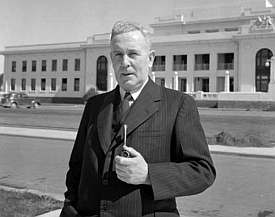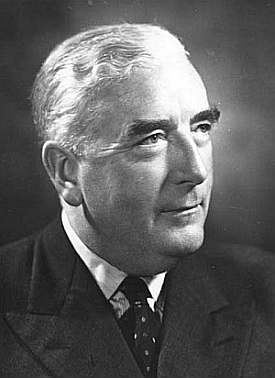Lady Gaga : Good afternoon. Can you all hear me?
I wrote this speech, this address, myself, (Video starts here) I’ve spent 48 hours trying to find the perfect thing to say. My address to you today is called “The Prime Rib of America.”
I do, solemnly swear, or affirm, that I will support and defend the Constitution of the United States, against all enemies foreign and domestic, and I will bear true faith and allegiance to do the same, and I will obey the orders of the president of the United States and the orders of the officers appointed over me, according to regulations and the uniform code of military justice, so help me God.
Unless, there’s a gay soldier in my unit, sir.
That is the oath taken every day by service members of the Armed Forces when they enlist to serve their country. Equality is the prime rib of America, but because I’m gay, I don’t get to enjoy the greatest cut of meat my country has to offer. There are amazing heroes here today, whose stories are more powerful that any story I could tell, any fight I’ve ever fought, and any song that I could tell. I’m here because they inspire me. I’m here because I believe in them. I’m here because “don’t ask, don’t tell” is wrong. … It’s unjust, and fundamentally, it is against all that we stand for as Americans.
The Pentagon and senators such as John McCain have cited that the military is a unique institution, they have cited that homosexuals serving openly cause disruption to unit cohesion and morale. So what this means is, that they’re saying that straight soldiers feel uncomfortable around gay soldiers, and sometimes it causes tension, hostility and possible performance inadequacies for straight soldiers who are homophobic. And even though some studies have been done to show an overwhelming and remarkable lack of disruption to units with gay soldiers, I will, for a moment, entertain this debate. As I am less concerned with refuting the fact that, in the workplace, in any workplace, there are tensions, there is even more of a possibility to have tension when you’re fighting for your life. But I’m more concerned that John McCain and other Republican senators are using homophobia as a defense in their argument. As the nexus of this law, openly gay soldiers affect unit cohesion, like it’s OK to discriminate or discharge gay soldiers because we are homophobic, we are uncomfortable, and we do not agree with homosexuality, and I can’t focus on the field of duty when I am fighting. “We have a problem with you.” Wasn’t that the defense of Matthew Shepard’s murderers? When they left him to die on a fence in Laramie, they told the judge, ‘Oh, Matthew’s gay, and it made us uncomfortable, so we killed him.’ ‘Oh, he’s gay, it makes me uncomfortable, send him home.’ As a side note, both Matthew Shepard’s killers have life sentences in prison, and laws have since been passed that homophobia cannot be used as defense anymore in hate crimes in our judicial system.
Doesn’t it seem to be that “don’t ask, don’t tell” is backwards? Doesn’t it seem to be that, based on the Constitution of the United States, that we’re penalizing the wrong soldier? Doesn’t it seem to you that we should send home the prejudiced, the straight soldier who hates the gay soldier, the straight soldier whose performance in the military is affected because he is homophobic, the straight soldier who has prejudice in his heart, in the space where the military asks him to hold our core American values, he instead holds and harbors hate, and he gets to stay and fight for our country? He gets the honor, but we gay soldiers, who harbor no hatred, no prejudice, no phobia, we’re sent home? I am here today because I would like to propose a new law; a law that sends home the soldier that has the problem. Our new law is called “if you don’t like it, go home.” A law that discharges the soldier with the issue, the law that discharges the soldier with the real problem, the homophobic soldier that has the real negative effect on unit cohesion. A law that sends home the homophobe, a law that sends home the prejudiced. A law that doesn’t prosecute the gay soldier who fights for equality with no problem, but prosecutes the straight soldier who fights against it. Or perhaps that was a bit spun. … To be fair, it sends home the straight soldier who fights for some freedoms, for some equalities, but not for the equality of the gay. He is the one — or she is the one — under this new proposition who will be discharged for disrupting the military. If you are not committed to perform with excellence as a United States soldier because you don’t believe in full equality, go home. If you are not honorable enough to fight without prejudice, go home. If you are not capable of keeping your oath to the Armed Forces to defend the Constitution of the United States against all enemies foreign and domestic, and I will bear true faith and allegiance to do the same, unless there’s a gay soldier in my unit, then go home.
Or, moreover, if you serve this country, is it acceptable to be a cafeteria American soldier? Can you choose some things from the Constitution to put on your plate, but not others? A buffet, perhaps. I’m not talking about citizens — we have a right to grieve, to protest, we have a right to this rally — but I’m talking about soldiers. Should the military be allowed to treat Constitutional rights like a cafeteria? In the military, is it acceptable to be a cafeteria American? What I mean to say is, should soldiers and the government be able to pick and choose what we are fighting for in the Constitution or who we are fighting for? I wasn’t aware of this ambiguity in our Constitution. I thought the Constitution was ultimate. I thought equality was non-negotiable. And, let’s say, if the government can pick and choose who they’re fighting for, as exemplified in laws like “don’t ask, don’t tell,” shouldn’t we as Americans be made aware of this imbalance? Shouldn’t it be made clear to the citizens of this country, before we go to war, shouldn’t I be made aware ahead of time that some of us are just not included in that fight? “We’re going to war for you and you and you and you, but not you, because you’re gay.” You can risk your life for this country, but in the end, you’re not fighting for yourself; you’re fighting for straight people. … You are not included. You are not included when we say “equal.” You are not even fully included when we say “freedom.”
I’m here today in this park, in Maine, to say that, if the Senate and the president are not going to repeal this “don’t ask, don’t tell” policy, perhaps they should be more clear with us about who the military is fighting for, who our tax dollars are supporting and, ultimately, how much does the prime rib cost? Because I thought this was an “all you can eat” buffet. This equality stuff, I thought equality meant everyone. But apparently, for certain value meals, for certain civil rights, I have to pay extra, because I’m gay. I’m allowed to stand in a line next to other men and women, I’m allowed to get shot at and shoot a gun to protect myself and my nation, but when it’s time to order my meal, when it’s time to benefit from the freedoms of the Constitution that I protect and fight for, I have to pay extra. I shouldn’t have to pay extra. I should have the ability, the opportunity, the right to enjoy the same rights — the same piece of meat — that my fellow soldiers, fellow straight soldiers, already have included in their Meal of Rights. It’s prime rib, it’s the same size, it’s the same grade, the same cost, at wholesale cost, and it’s in the Constitution.
My name is Stefani Joanne Angelina Germanotta. I am an American citizen, to the senate, to Americans, to Senator Olympia Snowe, Senator Susan Collins — both from Maine — and Senator Scott Brown of Massachusetts. Equality is the prime rib of America. Equality is the prime rib of what we stand for as a nation. And I don’t get to enjoy the greatest cut of meat that my country has to offer. Are you listening? Shouldn’t everyone deserve the right to wear the same meat dress that I did? Repeal “don’t ask, don’t tell” or go home. Go home. Thank you.


